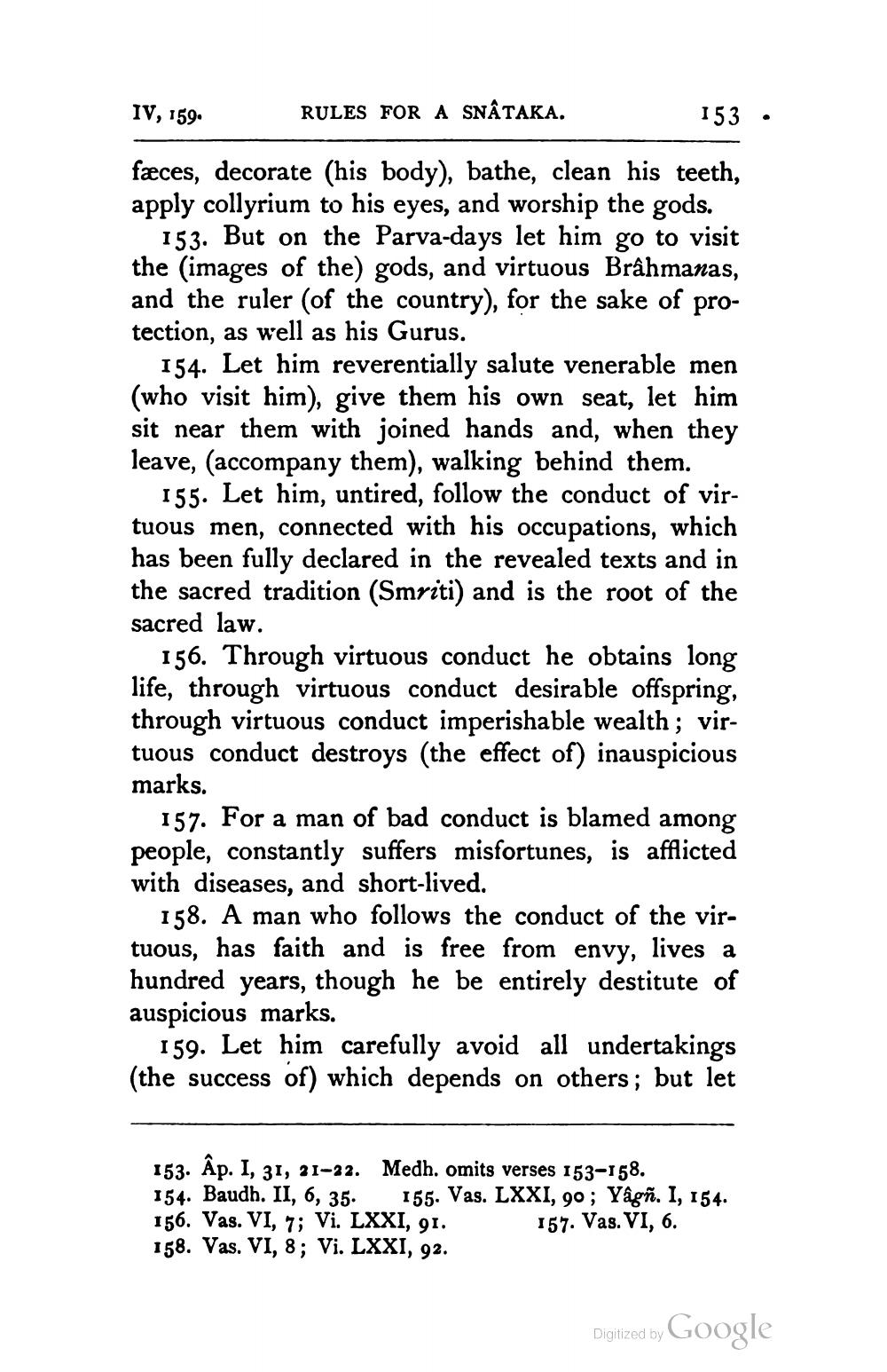________________
IV, 159.
RULES FOR A SNATAKA.
153 .
fæces, decorate (his body), bathe, clean his teeth, apply collyrium to his eyes, and worship the gods.
153. But on the Parva-days let him go to visit the images of the) gods, and virtuous Brahmanas, and the ruler (of the country), for the sake of protection, as well as his Gurus.
154. Let him reverentially salute venerable men (who visit him), give them his own seat, let him sit near them with joined hands and, when they leave, (accompany them), walking behind them.
155. Let him, untired, follow the conduct of virtuous men, connected with his occupations, which has been fully declared in the revealed texts and in the sacred tradition (Smriti) and is the root of the sacred law.
156. Through virtuous conduct he obtains long life, through virtuous conduct desirable offspring, through virtuous conduct imperishable wealth; virtuous conduct destroys (the effect of) inauspicious marks.
157. For a man of bad conduct is blamed among people, constantly suffers misfortunes, is afflicted with diseases, and short-lived.
158. A man who follows the conduct of the virtuous, has faith and is free from envy, lives a hundred years, though he be entirely destitute of auspicious marks.
159. Let him carefully avoid all undertakings (the success of) which depends on others; but let
153. Ap. I, 31, 21-22. Medh. omits verses 153-158. 154. Baudh. II, 6, 35. 155. Vas. LXXI, 90 ; Yâgñ. I, 154. 156. Vas. VI, 7; Vi. LXXI, 91.
157. Vas. VI, 6. 158. Vas. VI, 8; Vi. LXXI, 92.
Digitized by Google




